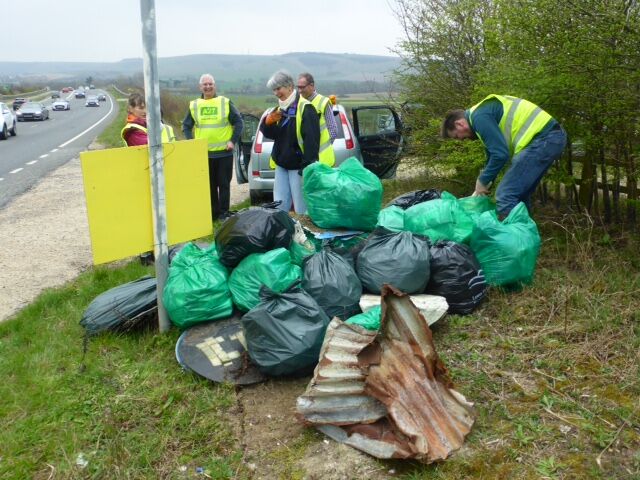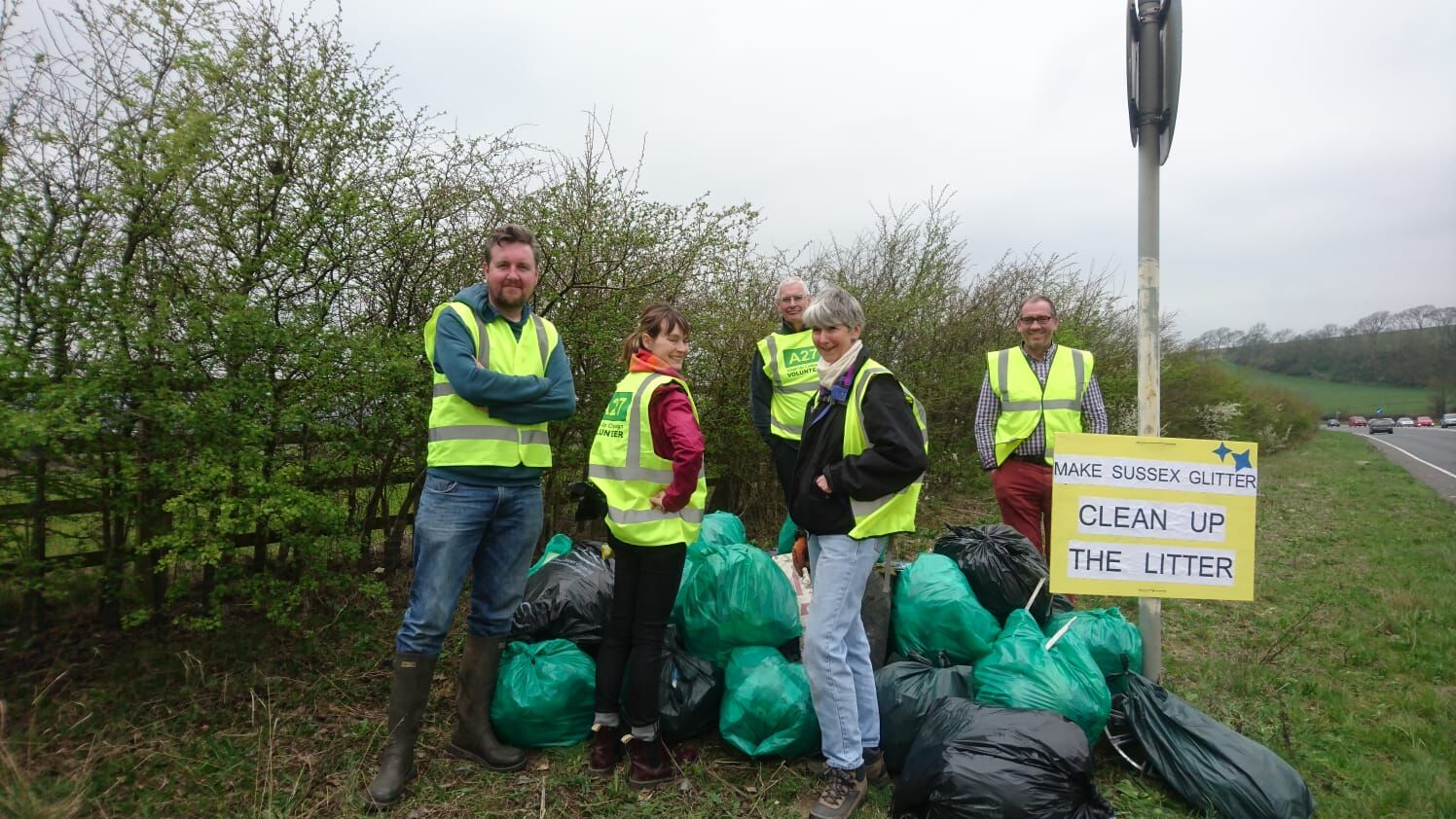The A27 is awash with litter, a councillor said, as he called for a better solution to keeping the verges clear alongside the Brighton bypass.
Conservative councillor Alistair McNair said that he recognised the efforts of community campaigners who had drawn attention to the continued presence of copious quantities of litter beside the trunk road.
And he noted the challenges faced by Brighton and Hove City Council in planning and paying for short-term road-closures “to facilitate clear-ups” in liaison with National Highways which is responsible for trunk roads.
Councillor McNair called for council officials to draw up a report setting out proposals for a long-term strategy to fund and execute sustainable litter clearing.
He said that among the most common complaints that he and his fellow Patcham ward councillors heard from residents was the volume of rubbish along the A27.
At a meeting of the full council on Thursday (7 April) Councillor McNair said that he went to inspect the road with fellow ward councillors Anne Meadows and Carol Theobald.
They found the A27 awash with litter, he told the meeting at Hove Town Hall. He said: “We could hardly find an area without it. Plastic bottles, face masks, sheets of plastic, sweet wrappers … you name it.
“In Brighton, I don’t know whether more people are paddling in the sea or paddling in the litter. It’s not just the A27. It’s everywhere.
“We are fortunate it’s not higher than ankles because of the volunteers and community groups who spend their evenings and weekends cleaning parks, pavements and roads.”
Labour councillor Gary Wilkinson said that the council should ask the government to transfer responsibility for cleaning the A27 to National Highways. Green and Labour councillors backed his request.
He said: “Councils receive no funding for clearing verges and have to pay National Highways’ contractors for the necessary road closures. The current system simply does not work.
“Brighton and Hove City Council needs to co-ordinate with National Highways’ contractors for litter picks to take place during other maintenance work.
“Cleaning operations are usually limited to night-time working only, which means councils have to make plans to adjust routine maintenance schedules as work can only be done at night or early morning on weekends.”
He said that the council should work with National Highways to create a litter-clearing timetable for now – and officials should prepare a report for the council’s Environment, Transport and Sustainability Committee on a long-term strategy.

Green councillor Jamie Lloyd said: “The amount of rubbish generated at the roadside is deeply depressing.
“I think that is another reason why we need to look at a society with less traffic and roads in it. It would generate a lot less rubbish.”
He told councillors that workers were litter picking along the A27 on Wednesday and Thursday the previous week. Last year, they collected seven tons of rubbish along the stretch between Patcham and Hollingbury.
Conservative councillor Carol Theobald said: “It’s important to remember Brighton and Hove’s unitary boundary extends into the South Downs – and the council needs to take responsibility for its land.
“People forget that the boundary of the city goes right up beyond the A27, into farmland and into the South Downs National Park.”









As Garry Wilkinson states, clearing rubbish from A roads (and all other roads in the city!) is a statutory responsibility of local councils, so perhaps they could get on and do it rather than complaining about funding.
However, as we know, the council can’t seem to manage this on other roads either and want civic-minded residents to do this for them as well.
I love Green councillor Jamie (Sustrans) Lloyd’s suggestion on the matter. Looks like buses and cycle lanes on the bypass is his solution.
Does he realise what the traffic is on these roads, and has he investigated the type of rubbish that is there or is it, yet again, blind ideology and dogma driving Green Party strategy?
This issue is a recurring one, whether it’s about litter on our beaches or debris seen on the road.
We all hate the rubbish we see left around, but it’s easy to make a drama out of this when what we actually need is more cleaners.
If we call the rubbish ‘litter’ then that word implies it’s all trash that has been deliberately discarded.
But I would like to know what percentage of the litter found is sweet wrappers and plastic bottles thrown from car windows, and what percentage is packaging blown off the back of trucks as they pass by our area.
Those of us using that road also see debris from road accidents or burst tyres which were not properly cleaned up after the event.
I won’t be standing up in support of any of the idiots who chuck litter from their cars, but it’s wrong to imply all the mess is from those few selfish people.
Not can we blame too much traffic on any road that, as here, is a major cross country artery for the transport of goods and service vehicles and for ordinary people going about their daily lives.
The true issue here is not about spreading communal guilt or victim blaming, but about budgets. The proper solution is that the A27 needs to be cleaned regularly – just as I wish we could see the occasional street cleaner in my own road here in Hove.
Ā few road closures at peak times to inconvenience drivers, with large signs explaining the closures are so their litter can be cleared, might be a bit of a wake up.
But you never know, there’s a lot of entitled drivers out there.
Inevitably there will be comments on here blaming the council or the greens, or anyone except the people actually responsible, but it’s an expense that never needs to be incurred if lazy people would just take their crap home with them.